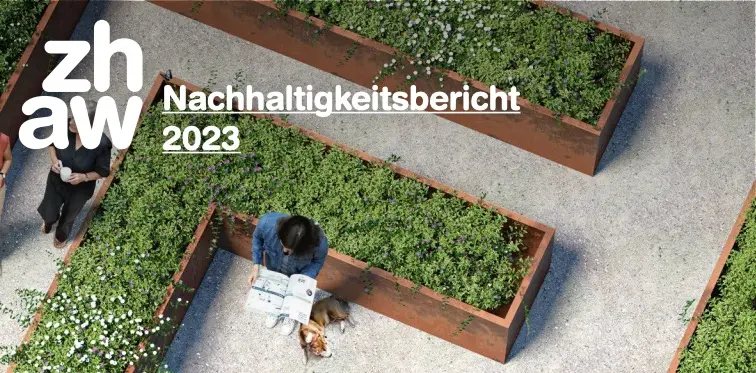ZHAW publishes first university-wide sustainability report
With its sustainability report, the ZHAW shows how sustainable development is anchored in governance, research and education at the university. Secondly, the report provides a transparent insight into university operations with data on energy, mobility and resource consumption.

In 2019, the ZHAW defined its approach with its sustainability strategy. Since then, the strategic programme ZHAW sustainable has been driving the transformation process forward. The first university-wide sustainability report now takes stock of what the ZHAW has already achieved, what developments can be seen and how the next milestones need to be tackled. The focus is on the fact that the ZHAW can only implement its sustainability strategy together with its employees and students. In the report, some of them are representative of the many ZHAW members who are committed to sustainable development in research, teaching, university operations and also personally - in ecological, social or economic terms.
Heating, mobility and food are the biggest emission hotspots
In order to reduce the ecological impact of its university operations, the ZHAW relies on realistic targets and evidence-based measures. In line with the motto “You can only manage what you can measure”, the ZHAW collects data in the areas of business and commuter mobility, resource consumption (catering, paper, ICT, water, waste) and energy consumption in buildings. In the latter, heating is responsible for the most greenhouse gas emissions, although the proportion of renewable energy continues to increase. In the area of resources, catering and ICT equipment are the largest emitters. In business mobility, air travel and commuting by car are the biggest sources of emissions that need to be reduced.
Report is the basis for dialogue
“With its report, the ZHAW makes its sustainability endeavours in its four service areas and for society transparent. The aim is to fulfil its responsibility towards internal and external stakeholders. In future, the report will be published every two years. The publication of the first university-wide report now provides the impetus for a “multi-stakeholder dialogue” to continuously improve sustainable development at the ZHAW. A series of events in the spring semester of 2024 will support this process.